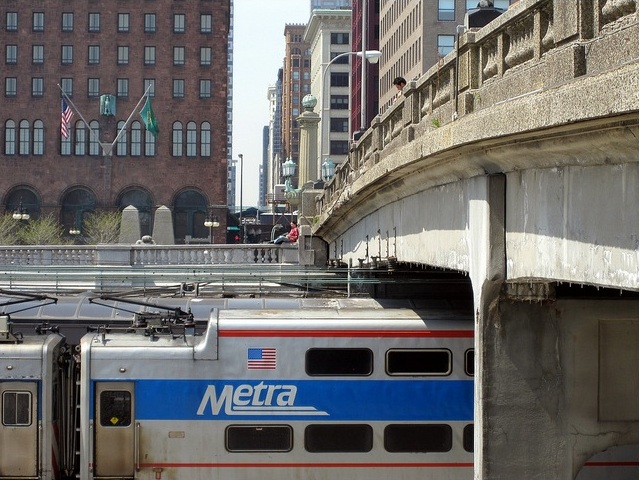International Study Finds Chicago Public Transit Lacking, Dysfunctional
By Chuck Sudo in News on Sep 15, 2014 9:30PM
There are several issues preventing Chicago area public transit from being truly worthy of a city that sees itself as world class. Among those issues: funding; overlapping bureaucracies; and a lack of coordination between RTA, CTA, Pace Suburban Bus and Metra. Example: there is absolutely no reason Metra should be implementing Ventra more than a year after CTA and Pace went through headaches to do so. All three should be on board with the shared-fare payment system now.
This lack of coordination and the transit agencies acting independent of each other are among the reasons an international economic group found Chicago’s transportation infrastructure to be lacking and, by extension, hampering economic development around the region. The study by the Paris-based think tank, the Organization for Economic Cooperation and Development found insufficient accountability among the four transit agency groups to be another issue. (And possibly of paramount importance with Metra’s handling of the Alex Clifford buyout still fresh in memory.) The group called Chicago public transit “relatively depressing.”
The report offers very little new information for those paying attention to the area’s public transit network, but it is a blow to Mayor Rahm Emanuel and others who continue to use “public transit system” and “world class” in the same sentence so frequently it appears they may be wishing it so. Olaf Merk, the author of the report, told the Tribune, "My own impression of the Chicago transit system would be that it is surely below the best urban transit systems in the world."
The report lends credence to a recommendation earlier this year by the Northeastern Illinois Transit Task Force that the separate operational structures of CTA, Metra and Pace be combined into one larger agency. RTA recommended last year that planning departments at the three agencies be consolidated. Merk and his team relied heavily on previous reports by the Metropolitan Planning Council and Metropolis Strategies (formerly Chicago Metropolis 2020) that found ridership on CTA and Metra has declined since 1980, and that the agencies are more concerned with protecting their turf than addressing ridership needs.
Funding is another critical issue broached in the report.
Chicago spends less on transit capital needs than it did 20 years ago, but Chicago's per capita transit spending is falling behind other cities in the U.S. and internationally, the report noted..London spends five times more on transit per capita than Chicago, while New York spends three times more, the report found.
Both New York and Philadelphia have a single board that oversees and appoints managers of transit operations, the report noted.
Outdated transit funding was also a target of the report.
The lack of accountability may be the most damning issue cited in the report. It lists supermajority voting requirement at RTA, where 75 percent of board members having to vote in favor of anything, and the five Chicago-based appointees that block many decisions at RTA.
"The current governance structure of public transport allows agencies to point fingers at each other when there are problems," the report said."In addition, the sheer number of board members (47) creates a heavy management structure … as all of these are political appointees, not elected by the general public like in some other U.S. metropolitan areas," the report added.
The report concluded, "Public transit in Chicago is organized such that it is difficult to identify the main actor to hold accountable for underperformance."
